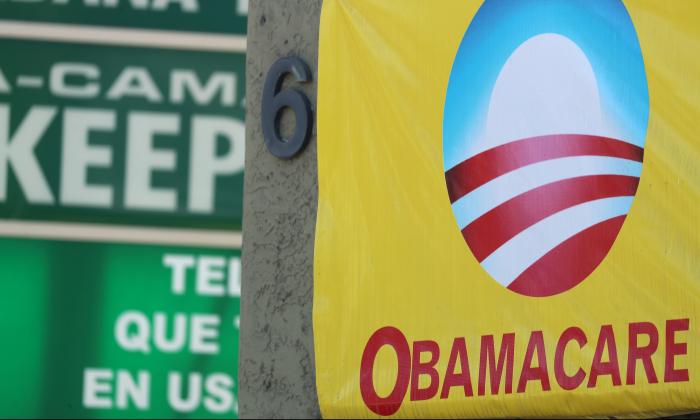Shares of health insurers, hospitals, and healthcare companies fell on Dec. 17 in the aftermath of a ruling by a federal judge in Texas that the Affordable Care Act (ACA), commonly called Obamacare, was unconstitutional.
O'Connor agreed with a coalition of Republican officials from 20 states that Obamacare was unconstitutional based on its mandate requiring that Americans obtain medical insurance. The judge refused the states’ request to issue an injunction immediately blocking 2010 law that was championed by Democratic former President Barack Obama from being enforced.
The White House on Dec. 14 said the law would remain in effect pending any appeal.
The fall in healthcare stocks pulled the broader S&P 500 managed health care index down 2.5 percent.
Centene Corp. fell 7.8 percent to $117.50, while Molina Healthcare slumped 10.1 percent to $118.40. The companies are among the health insurers with exposure to ACA.
WellCare Health Plans and Anthem Inc. declined 4.7 percent and 2.1 percent, respectively.
Brokerage BMO Capital Markets said it expects Centene and Molina to be most affected by the ruling, as they have the highest ACA exposure, which the broker measures as an “estimate of the percentage of company revenue and earnings driven by Obamacare exchanges and/or the Medicaid expansion,” referring to the government insurance program for lower-income people.
“While we are disappointed in the recent Northern District of Texas court’s ACA ruling, we recognize that this is a first step in what will be a lengthy appeals process,” Molina Healthcare said.
“Regardless, the ACA will remain in effect for 2019, and we are optimistic that it will remain in effect thereafter.”
The ACA required that all individuals have health insurance or pay a tax and also included payments worth billions of dollars to health insurers to subsidize insurance for low-income Americans. The Republican-led Congress last year eliminated a penalty that the ACA levied on people who opted not to obtain insurance.
Republicans, including President Donald Trump, have long criticized the law, calling it a costly and unneeded government intrusion into Americans’ lives. About 11.8 million people nationwide enrolled in 2018 Obamacare insurance plans.
Republican state officials, led by the attorney general of Texas, filed a lawsuit last year arguing that getting rid of the penalty rendered the mandate unconstitutional. The Trump administration declined to defend the mandate, spurring Democratic officials in 16 states to intervene.
California Attorney General Xavier Becerra in a statement said the Democrats would appeal Friday’s decision.
“The ACA has already survived more than 70 unsuccessful repeal attempts and withstood scrutiny in the Supreme Court,” he said.
The ruling, if affirmed, would have a major impact on the healthcare sector and the overhang alone could trigger widespread selling across the sector, Oppenheimer analyst Michael Wiederhorn said.
The Supreme Court in 2012 ruled that the individual mandate was a valid exercise of Congress’ taxation powers, with the law imposing a monetary penalty on people who did not obtain insurance.
In Friday’s decision, O'Connor said that because Congress lowered the penalty to zero last year, the mandate no longer came with a “tax” and is unconstitutional. But the judge also held that because the ACA is not financially viable without the mandate, the entire law had to be struck down.
Experts said the problem with O'Connor’s ruling is that Congress last year eliminated the penalty without repealing the entire law. That shows lawmakers believed the law could stand without the mandate, said Nicholas Bagley, a professor at University of Michigan Law School.
But some experts noted that when Congress passed the ACA in 2010, lawmakers acknowledged that the requirement that insurers provided coverage for pre-existing medical conditions had to be paired with the mandate in order to work.
Enforcing the remainder of the law without the mandate “creates a death spiral where rates will go out of control,” said Josh Blackman, a professor at South Texas College of Law whose work O'Connor cited in Friday’s ruling.





